Iconic...
Forgotten...
Timeless...
Innovative...
These are the soundtracks that helped shape and define what we hear in the video games that we play. I am Nitro, and this is the M Disk Playlist's Video Game Music Primer: 2007.

Professor Layton and the Curious Village, composed by Tomohito Nishura
Before making games for Nintendo, Level-5 was known for its works on the PlayStation 2. The Dark Cloud games, Dragon Quest VIII, Rogue Galaxy, and Jeanne d'Arc for the PlayStaiton Portable. Each made by the same company who would give Nintendo both the Inazuma Eleven series, and the Professor Layton series.
Tomohito Nitshura studied music since he was a child, gravitating towards the folk music genre, with the acoustic guitar being his instrument of choice. He decided to compose for video games after he graduated university, starting as a sound effects designer for Riverhill Software's OverBlood 2. The director of OverBlood 2, Akihiro Hino, would go on to found Level-5 with funding from Sony, and offered Nishura the position of lead sound design for the company.
His first game as a composer was Dark Cloud. He would help with either the music or the sound effects for other games until working almost exclusivly on the Professor Layton series. His music was light-hearted, whimsical, with a heavy emphasis on the accordion, and something that would fit in with a puzzle adventure game. Not jarring, but pleasant.
Tomohito Nishura helped give Level-5 its humble sound design beginnings. Nowadays, he continues to enhance the experience of the Professor Layton franchise. It may seem like a safe choice, considering how many different game franchises Level-5 has actually produced, but it's because of Nishura focusing solely on Professor Layton, that the series can have a one of a kind score, distinctive from all of Level-5's other games.
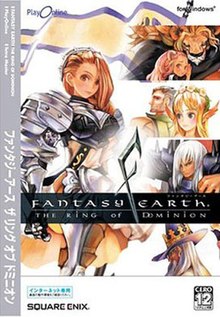


Fantasy Earth: Zero, GrimGrimoire, and Odin Sphere
What do all three of these games have in common? All three were worked on by the newly formed Vanillaware studio, founded by George Kamitani; former artist for Capcom, and director of the Sega Saturn's Princess Crown. The second thing all three games shared was that all three were composed by members of the music group, Basiscape. The third and final common trait the three games shared were that they were all released within a three month time period.
Founded by Hitoshi Sakimoto, Masaharu Iwata, and Manabu Namiki in 2002, Basiscape would be a resource of freelance game composers. The composers working under the Basiscape label would be hired for a number of individual projects. And then there were projects where composers under the Basiscape label collaborated together, allowing the game to give proper credit "Basiscape" as the composing sound team.
All three games were scored by Hitoshi Sakimoto, and Masaharu Iwata. But the three games had different Basiscape members composing for them. Manabu Namiki, the music studio's third founder, worked on Fantasy Earth: Zero and Odin Sphere. Kenichi Koyano only worked on Fantasy Earth: Zero. Kimihiro Abe, and Mitsuhiro Kaneda both worked on GrimGrimore and Odin Sphere. And Noriyuki Kamikura only worked on GrimGrimore.
Fantasy Earth: Zero was the first of the three games released. It was an MMORPG released exclusively in Japan for the PC. The game is still currently being played by players, and the game is still producing exclusive events. Vannilaware Originally worked on the game under the name Puraguru. It was through this game that George Kamitani met Hitoshi Sakimoto.
GrimGrimoire would officially become the first game developed by Vanillaware to be released. It was released on the PlayStation 2 in all territories throughout 2007. While the first to be released, it was actually the second to be finished. It took almost six months for the game to be developed, and would be the game that nearly put Vanillaware out of business, due to using all of their funds on this game alone, and the game ending up being a commercial failure. Lucky for them, Odin Sphere would end up being a critical, and commercial success.
Odin Sphere would be released in Japan and North America in May 2007, while the rest of the world had to wait a year later for the game. Odin Sphere would also end up being Vannilaware's most accessible title, first being released on PlayStation 2, then emulated to the PlayStation 3 as a PS2 Classic, and then re-released as an enhanced port for the PlayStation 3, 4 and Vita under the name; Odin Sphere Leifthrasir.
All three games featured the same style of grand, cinematic, and orchestrated sound that would make the duo of Hitoshi Sakimoto and Masaharu Iwata famous to begin with. Their collaborative efforts on Final Fantasy Tactics, and the Ogre series in the 90s helped define their style. As freelancers, they were able to help create a music studio for freelancers sharing their vision in music, and would expand operations throughout the years. And it was Basiscape's collaboration with Vanillaware that helped give these composers the chance to show what Basiscape could do for the video game industry.

Eternal Sonata, composed by Motoi Sakuraba
Music can enhance the gaming experience. Music can even create the gaming experience. But there are times where games can enhance, create, and be the literal gaming experience. That's where Eternal Sonata comes in. A Japanese role playing game set in a fictional world loosely inspired by the life of Polish composer Frederic Chopin. The world this game creates is supposed to be what Chopin had dreamed of during the final hours of his life, before passing away of tuberculosis. The game features the music of Chopin, as interpreted by Stanislav Bunin, and arranged by the game's composer, Motoi Sakuraba.
Sakuraba throughout his school year became famous for his skills as a keyboardist. He started his professional music career as a member of progressive rock group, Clashed Ice, with vocalist and drummer Genta Kudo. After signing with Made in Japan Records, vocalist Tetsuya Nagatsuma joined the group and was renamed Deja Vu. Deja Vu had a successful run in the 80s as a group that combined the Baroque style of music with a more modern sound. The group later added two members of another well known group, Outer Limits. Tomoki Ueno, and Ken Ishita. Deja Vu broke up in 1989 due to creative differences. Sakuraba released a solo album under Made in Japan Records before joining Wolf Team, and by proxy, Telenet Japan as a composer.
He solidified himself as a prominant composer with scores for the games Akushu and Arcus II: Silent Symphony. He continued to make hit after hit until eventually becoming a freelance composer. As a freelancer, he continued to compose for Wolf Team, while simultaniously contributing to scores of games made by tri-Ace, consisting of members who were frustrated by Telenet Japan's business practices. Sakuraba's involvement with tri-Ace further increased his fame, due to the music he scored for the Tales of series, and Star Ocean series respectively.
Game director Hiroya Hatsushiba states in an interview with Gamestop that "most of [the people in Japan] have heard Chopin's music but not a lot could put his name to it immediately. By creating a colorful fantasy world in Chopin's dream, I was hoping that people would get into this game easily and also come to know how great Chopin's music is." The game's ending theme, the aria Heaven's Mirror, is performed by Akiko Shinada.
With the exception of the romanticized Frederic Chopin, the entire cast of the game is named after music terminology. References to Chopin were so carefully handled, the localization team saught the Frederic Chopin Society's thoughts, to ensure that the even in a fantasy JRPG setting, the game was still able to accuratly portray who Chopin was, and the kind of music he scored.
Rarely does music history, and music theory come together in a game like this. Developed by tri-Crescendo, who originally did sound development for tri-Ace games, managed to develop a musical world inspired by a real life composer, while both providing a myriad of music lessons, and providing the epic Japanese role playing game from developers whose experience with JRPG's dates all the way back to the first Tales of game, even including the talents of that game's composer.
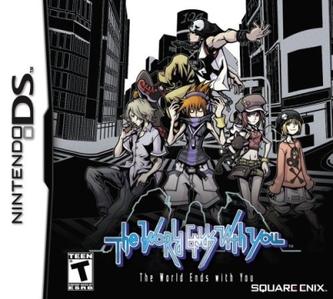
The World Ends with You, composed by Takeharu Ishimoto
Takeharu Ishimoto's taste in music revolved around the electric guitar. It was a gift that helped inspire his interest in music, and a curse that kept him from being a composer at first. Inspired by Final Fantasy VII, Ishimoto sought to work as a composer for Square. However, Square didn't believe that Ishimoto's music preference would be suitable for their sound department, so he was insted hired as a synthesizer operator. He assisted on games like Front Mission 3, Vagrant Story, and the All Star Pro-Wrestling franchise exclusive to Japan. He was eventually able to work on arrangement albums implimenting his rock style, until finally getting the chance to compose his first game, World Fantasista.
He continued to operate the synthesizer for Square, and later Square Enix, until he caught the attention of Tetsuya Nomura, who had been handling various Final Fantasy VII spin-offs at the time. Nomura recruited Ishimoto to help score the Final Fantasy VII spin-off game Before Crisis. Ishimoto would go on to work on other pieces of Final Fantasy VII media like the animated OVA Last Order, and the PlayStation Portable game Crisis Core. Around the same time as Crisis Core, Ishimoto would work closely with Nomura again on what was considered a side Square Enix project at the time, this game.
The approach for scoring this game can be compared to what Persona 3 achieved, a modern/contemporary score, with a strong emphasis on vocal music. But unlike the PlayStation 2, vocal music would be much harder to impliment on the Nintendo DS. Especially with how many were composed for the game. But Nomura wanted to keep the vocal music, and was willing to reallocate the game's memory to where the game can play the music as intended.
The game's vocalists include SAWA, Nulie Nurly, Makiko Noda, Leah, Ayuko Tanaka, Mai Matsuda, WAKAKO, Hiroshi Miki, Cameron Strother, Andy Kinlay, Londell "Taz" Hicks, and Hanaeryca. Satoko Amikura performs a secret track that can be heard in the game's soundtrack, Emptiness And. One of the vocalists, Cameron Strother, notably performed the song Dreams Dreams from the 1996 Nights into Dreams when he was 10 years old.
Takeharu Ishimoto grew up with rock music. The genre and Square's resistance to it may have delayed Ishimoto's scoring opportunities, but when he was finally given the chance to shine, he not only took advantage of the opportunities offered to him, but took advantage of the chance to compose one of Nintendo DS' most experimental and hardware limit pushing scores.
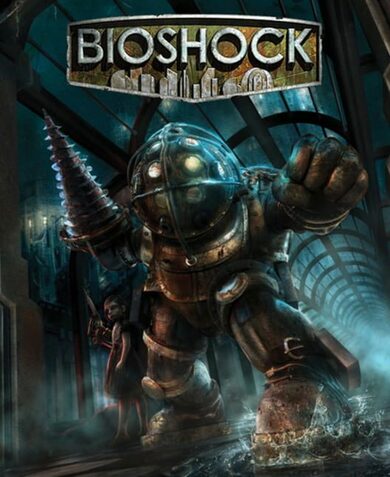
BioShock, composed by Garry Schyman
Garry Schyman graduated with a music degree in 1978, and started his career as a ghost composer for television shows Magnum PI, The Greatest American Hero, and The A-Team. He continued a steady career as a film and television composer, eventually jumping into video games with the score for the Phillips CD-I game, Voyeur. Released in 1993, Voyeur was one of the first games to feature live orchestrated music. After two more games, Schyman returned to film and television, citing limitations of budget and quality in game scores at the time. He returned exclusively to the video game industry with the 2005 Destroy All Humans after feeling that orchestrated scores were becoming irrelevant in the film and television industry.
For BioShock, Schyman was able to compose an atmospheric horror sound fitting for an underwater dystopia, and incorporate it with famous music from the 40s and 50s from artists like the Ink Spots, Bing Crosby, Patti Page, Billy Holiday, and Bobby Darin. For the original compositions, Schyman relied on the musique concrete technique, which uses recorded sounds as raw material for compositions. Sander Cohen, whose Fort Frolic is the most music-centric area in the entire game, incorporates Cliff Eidelman's Ballroom Waltz, and Tchaikovsky's Waltz of the Flowers as motifs of the character. But the music experience wasn't entirely haunting. The piece that plays as you're first traveling to Rapture via the bathysphere "Welcome to Rapture" is described by Schyman as "evocative." Showing exactly how beautiful a city like Rapture is on the outside, but once you're inside, reality sinks in.
BioShock, spiritual successor of Ken Levine's System Shock series, became one of the Xbox 360's most successful titles, and one of 2007's most critically acclaimed games. It helped innovate the horror experience, turned a simple phrase like "would you kindly" into a metaphor of manipulation, and as Garry Schyman demonstrated, took licensed music from the early 20th century, composition techniques from the early 20th century, and implanted it into a horrific interpretation of the early 20th century.
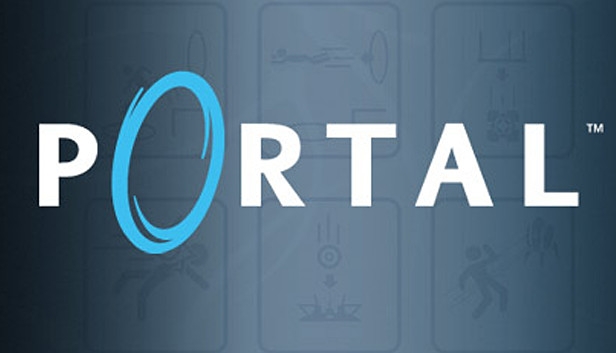
Portal, composed by Kelly Bailey, Mike Morasky, and Jonathan Coulton
As one of Valve's key staff members, Bailey was responsible for all aspects of sound starting with the first Half-Life. On top of composing the game, he would code the character speech and DSP reverb effects. He also helped create some of Half-Life's areas, as well as the beginning sequence where the Anti-Mass Spectrometer was destroyed. He is even the facial model for main protagonist, Gordon Freeman.
Mike Morasky's professional career began as a technical director for the Lord of the Rings trilogy, and the 2003 Matrix films. As experienced as he was with visual effects, his primary passion was gaming and music. Thus, Valve was the best place to express his passions, starting with Orange Box games Team Fortress 2, and Portal.
While Bailey and Morasky composed much of the entire score, relying on a somewhat haunting atmosphere to compliment the mystery of why you're solving GLaDOS' puzzles in the first place, the most popular piece of the score would end up being the staff roll theme, Still Alive.
Still Alive was performed by comedy song writer Jonathan Coulton, who at that point of his career, was known for songs like Re: Your Brains, Tom Cruise Crazy, and Code Monkey, the opening song for G4's animated comedy, Code Monkeys. The vocals for Still Alive were performed by GLaDOS' voice actress Ellen McClain. The song itself depicts GLaDOS' musings over the events of the game's finale. McClain's role as GLaDOS was so well received, she was recruited by Guillermo Del Toro to be in his film Pacific Rim, as an AI voice, and he specifically wanted that AI voice to sound like GLaDOS.
Whether it was the puzzles, GLaDOS' mannerisms, the cake being a lie, or the music, Portal had it all. Initially released as a side game under the Orange Box collection. The Orange Box was expected to be a success due its inclusion of each Half-Life 2 game, and Team Fortress 2. Portal, the original game of that compilation, would end up arguably being the most popular addition to the collection.
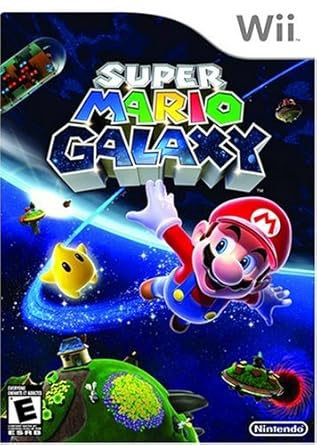
Super Mario Galaxy, composed by Mahito Yokota, and Koji Kondo
Super Mario Galaxy gave Nintendo the chance to do many different things with the Mario franchise that couldn't be possible on other systems. The motion controls of the Wii allowed Mario to impliment new moves against enemies, the outer space setting allowed for more open-ended approaches to level design, and for the first time in Nintendo's history, the music was scored using a live symphony orchestra.
The driving force behind Super Mario Galaxy's live music is Mahito Yokota. Yokota started his music career working for Koei. With Koei, he was able to impliment live orchestrated scores for games like Kessen, Dynasty Tactics, and Crimson Sea. He would join Nintendo in 2003 with his first official game for the company being the 2004 Donkey Kong Jungle Beat, a game which proved to be a departure from the type of scores he composed while working for Koei. He would also compose an orchestraed piece for the E3 2005 trailer of The Legend of Zelda: Twilight Princess.
When assigned as the primary composer of Super Mario Galaxy, he originally wanted the game to be Latin-influenced. However, the game's secondary composer, Koji Kondo dismissed this as it sounded in his words, "cute rather than cool." So Yokota sought to make the score live, with a 50-piece orchestra. Producer Shigeru Miyamoto was sold on the orchestraed score as it sounded the most "space-like" out of other potential music ideas for the game.
While Yokota scored most of the game, Kondo scored only four pieces. Good Egg Galaxy, and all three versions of Rosalina's observatory music. Kondo had been composing for Mario games since the very first Super Mario Bros game in 1985. He had been a primary composer for Nintendo games throughout the 80s and 90s with his most popular scores being the home console entries of the Mario and Zelda series. He hasn't been a primary composer for a Nintendo game since Majora's Mask, but even if the amount of composing for games decreased, he is still able to contribute to Mario and Zelda titles.
As innovative and as successful as the Super Mario Galaxy score was, it also added to the legacy of Mario music. The Gusty Garden Galaxy theme would end up becoming the most memorable piece of the entire score. Similar to how Super Mario Bros' original athletic theme would appear in future Mario titles, the music in Gusty Garden Galaxy would reappear in Super Mario Galaxy 2, would be rearranged for Super Mario 3D World, and its main motif would appear in Mario Kart 8.
Thanks to the talents, and efforts of Mahito Yokota, Super Mario Galaxy was able to push the audio capabilities of Nintendo games to the highest limits at the time. Live orchestrated music may not be as innovative in 2007 as it was in the early 90s, but live orchestrated music in video games wasn't nearly as popular, or as universally loved in games as it was when Super Mario Galaxy first came out.

Crysis, composed by Inon Zur
Inon Zur had been fascinated with classical music since his childhood, when he would compose music to match the melodies of his Mother's singing. He would develop skills as a French horn player, a piano player, and finally professional composition, all before he turned ten. After emagrating to the United States from Israel, he continued to study music under composer Jack Smalley, who had been recognized for his works on the television shows Charlie's Angels, The Love Boat, and Murder She Wrote.
Zur would go on to compose for independant films like Yellow Lotus, and would be a composer for Fox Kids. As a composer for Fox Kids, he would contirbute to shows like Power Rangers, Big Bad Beetleborgs, Mystic Knights of Tir Na Nog, and the Fox Kids dubs of Digimon, and the Vision of Escaflowne. Zur's last score for Fox Kids was Power Rangers Time Force. After this, he became primarily a video game composer, receiving acclaim for his works on games like Icewind Dale II, SOCOM II: US Navy SEALs, and Men of Valor.
Crysis would be one of the more critically acclaimed games Zur worked on, largely in part due to how the game looked in comparison to how other games had looked at the time, even becoming one of PC Gamer's highest rated games at the time. Unfortunately, Crysis would also be one of the least accessible games Zur worked on due to the, at the time, steep hardware requirements to run the game properly. But the game was still widely regarded enough to warrant two sequels, console ports four years later, and an upcoming remaster later this year. Zur would not return for the second and third Crysis games.
Inon Zur's resume is traced to television, even learning from televison's best composers. He took what he learned from the television industry, and implimented his skills into the video games he worked on. His cinematic style of approaching video games had been critically acclaimed. But in 2007, as accomplished as he already was, Zur would not yet achieve the critical acclaim that he would get during the latter half of the current gaming generation.
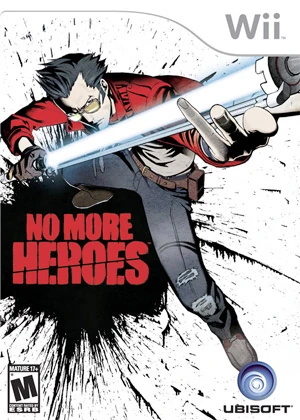
No More Heroes, composed by Masafumi Takada and Jun Fukada
Goichi Suda AKA Suda51 is known for some of gaming's most unconventional storytelling and gameplay mechanics. He founded Grasshoper Manufacture to make the kind of games he wanted to, rather than be tied down to sequels or already established franchises. His games were either considered polarizing cult classics, or were never released outside of Japan. No More Heroes would end up becoming Suda51's most popular, and most often re-visited game.
Masafumi Takada and Jun Fukuda were both primary composers for Grasshoper Manufacture. Takada was a jazz music specialist since his early childhood, and after graduating university, his interest in composition took him to the game industry as it was transitioning from the 16-bit era to the 32-bit era. One of his first scores was for the game Ranma 1/2: Battle Renaissance, which became an early demonstration of Takada's ability to blend different genre's from different cultures into one.
He was offered a position at Grasshoper Manufacture after impressing Suda51 with his score on a game he had deveoped in 1997, Moonlight Syndrome. Since joining Grasshoper Manufacture, he has consecutively composed for every single game developed by them. His streak of games scored was broken when Akira Yamaoka joined Grasshoper Manufacture for the 2011 Shadows of the Damned. Outside of Grasshoper Manufacture, Takada is known for his works on the Danganronpa series.
Unlike Takada's upbringing, Jun Fukuda didn't study music until he was 20. He was self taught until joining Grasshoper Manufacture. His first score was Capcom's God Hand, which was also scored by Takada, making it their first collaboration together.
The game features two vocal pieces, one original, and one licensed. The licesned track is the Genki Rockets' Heavenly Star, which is used as a recurring motif throughout the game. The music video for the song even appears in the Japanese and European releases of the game. The second is an original written by Suda51, The Virgin Child Makes her Wish Without Feeling Anything, and yes that is the actual title of the song. It is the song Dr. Peace sings when Travis Touchdown meets him, and it is also used as the bad ending staff roll. The song is performed by Brad Holmes, as Dr. Peace's singing voice actor
No More Heroes became a success for Suda51, spawning a sequel, a spin-off, and an upcoming third game. It helpd Suda51 and Grasshoper Manufacture become more of a household name, and it helped give the Nintendo Wii one of its few successful third party titles for a mature audience.

Lost Odyssey, composed by Nobuo Uematsu
After Nobuo Uematsu left Square Enix in 2003, he became a freelance composer. He would still contribute to the Final Fantasy series, a series that he helped enhance with his score since the very first one. But the contributions were few in between. Being a freelancer allowed him to work once again with Final Fantasy creator Hironobu Sakaguchi, who had also left Square Enix at the same time. Sakaguchi left Square Enix to form his own studio, Mistwalker. With financial backing from Microsoft, Mistwalker had worked to give the Xbox 360 Japanese Role Playing Game experiences that could not be found on other consoles. And what better statement to make from Microsoft than to have exclusive JRPGs from the original creator of Final Fantasy, composed by Final Fantasy's original primary composer.
Lost Odyssey would be one of their collaborations for the Xbox 360, one of the system's largest games, requiring four discs to fill the entire game. For this game, Uematsu wanted to compose the game using a live orchestra, something he hadn't done for any Final Fantasy game. Genre's Uematsu implimented were a blend of rock, electronica, symphonic, and oriental. The game features two vocal tracks, both performed by Grammy award winning vocalist, Sheen Easton. During a 2009 interview conducted by Destructoid, Uematsu states that the final battle theme for the game, Howl of the Departed, was his favorite piece of music he had scored recently.
Lost Odyssey was one of the Xbox 360's biggest games. The experience accumilated from past Final Fantasy's were integrated in this title. From sound design to character design, Lost Odyssey could be as close to a spiritual successor as you could get. With Lost Odyssey, Nobuo Uematsu could still show how capable he was at composing some of the most eclectic music for serious stories.
WRITTEN SOURCES
BMI
Destructoid
Gamasutra
Gamengai
Gamestop
IGN
Iwata Asks
Kotaku
Michibiku
nightsintodreams.com
Plogue
RPGFan
VGMO

No comments:
Post a Comment